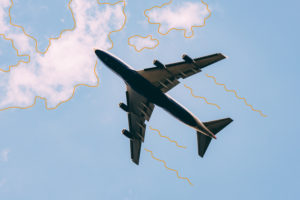Short-haul Jet-lag…
… is definitely a thing. Don’t @ me.
In my role at Interactive Workshops, I have the privilege to work with some of the most incredible global companies and travel to some really cool places. This year alone I’ve been on 45 flights so far and it’s only October. Only a handful of those flights have been long-haul, so most of my travel is done in-and-around the varied landscapes and wonderful cultures of Continental Europe.
For me, I always find that travelling long-haul isn’t too bad – in fact it’s a bit of an adventure. It’s made even simpler as there’s always an expectation that the traveller will be tired on arrival and will need some relaxing time to get their body aligned with the local timezone. Which is great! Everyone in the industry knows that a tired facilitator is not a good facilitator.
But with short-haul flights – just an hour here or two hours there – there is no expectation of tiredness. In fact, it’s almost given that your body will have acclimated to the timezone straight away. In my days of only travelling for pleasure, I probably would have agreed with that fact. After all, it doesn’t matter if you eat dinner an hour or two later than you usually would when you’re sitting on the promenade in the French Riviera with a glass of rosé in hand. In fact, it’s massively encouraged.

When you’re working however, those 1-2 hours really make a difference. Firstly, facilitation days are early days to begin with. You need to be on time and feeling fine, ready to keep your energy going for the better part of 15 hours. If you team that with waking a few hours earlier than you’re used to, eating breakfast before you’ve usually woken up and eating dinner after you’ve usually fallen asleep, you’ll be in for a bit of a confused body clock. Then, a few days later, just as your body is getting used to it, you fly back home and try to get your old rhythm back. Another few days later, just as you’ve got it, of course, you’re back on a plane and the cycle starts all over again. I’m really finding it all quite tough.
Now, clearly, I have had a lot of head space to think about this – probably during all those flights I’ve been on – but the only possible solution I’ve come up with (and it’s not a practical one) is to switch my entire body-clock to GMT +1, even in the UK.
As I say, not practical, and quite frankly it’s a little bit ridiculous, but it’s all I’ve got. If anyone else has a cure, please do help me with my suffering.
I’m willing to try anything…
